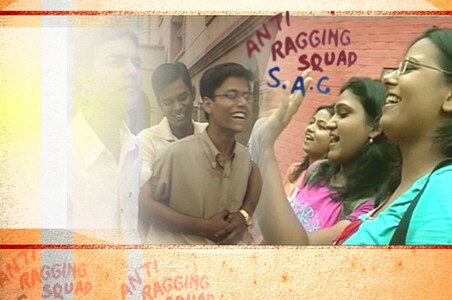
Modifying the definition of ragging, the UGC has identified new acts that constitute the offence and said the menace is not confined to seniors alone.
Disagreeing with the belief that only seniors commit ragging, the UGC's new regulation says ragging involves "any conduct by any student or students -- whether by words spoken or written or by an act which has the effect of teasing, treating or handling with rudeness a fresher or any other student."
Exploiting students for completing academic task assigned to an individual or a group and their financial extortion are among the new acts that amount to ragging.
According to the latest notification issued by the UGC, inclusion of various types of harassments has made the definition of ragging more elaborate.
"This has been done as per the suggestion of Supreme Court-appointed R K Raghvan Committee keeping in view the change in methods of committing the offence and instances of students of the same batch committing the offence," a senior UGC Official told.
As per the regulations, any act of physical abuse including all its variants: sexual abuse, homosexual assaults, stripping, forcing obscene and lewd acts, gestures, causing bodily harm or any other danger to health or person would amount to ragging.
Any act by student that prevents, disrupts or disturbs the regular academic activity of any other student and exploiting the fresher's for completing the academic task assigned to an individual or a group of students also amount to the offence.
The act of abuse by spoken words, email, post, public insults, which would also include deriving perverted pleasure, vicarious or sadistic thrill from actively or passively participating in the discomfiture to fresher or any other student will amount to ragging.

